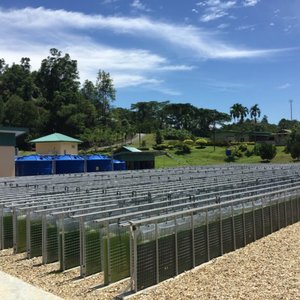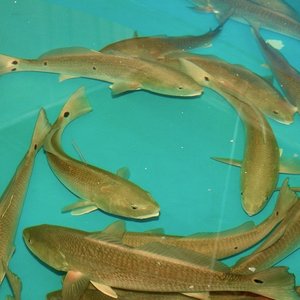Some studies report that fish broodstock diets supplemented with plant-based oils enhance progeny's ability to utilize low fishmeal and fish oil diets. However, the intervention with vegetable meals in broodstock diets has been scarcely tested in marine fish. A group of Spanish and Italian researchers evaluated the effect of fishmeal replacement by plant-based meal, alone or in combination with fish oil replacement by plant-based oil in gilthead sea bream (Sparus aurata).
Different broodstocks of gilthead sea bream were fed one of three diets: one contained 35% fishmeal and 10% fish oil; another contained plant meals replacing fishmeal (15% fishmeal); a third one that had both plant meals and plant oils replacing fishmeal and fish oil (15% fishmeal and 2.7% fish oil). Their offspring were challenged with a low fishmeal (5%) and fish oil (3%) diet for 45 days at the weight of 3 g.
Results showed that fishmeal replacement by plant meal in broodstock diets did not affect fish reproductive performance, but researchers found a reduced growth and feed efficiency in their offspring juveniles and in the liver, altered fatty acids profiles and down-regulated fatty acyl desaturase 2 expression.
Combined supplementation of plant meal and plant oil in broodstock diets led to a poor reproductive performance, reducing female fecundity and the egg content in eicosapentaenoic acid (EPA) and docosahexanoic acid (DHA).
Researchers concluded that the replacement of fishmeal by plant-based meal, alone or in combination with fish oil in diets for gilthead sea bream broodstock, negatively affected growth performance of juvenile offspring, whereas replacing fish oil with plant oil enhanced the fatty acid desaturase and elongase activities in the offspring, especially when juveniles were fed a diet with a high replacement of fishmeal and fish oil by plant-based meal and oil.
Read the study here.













